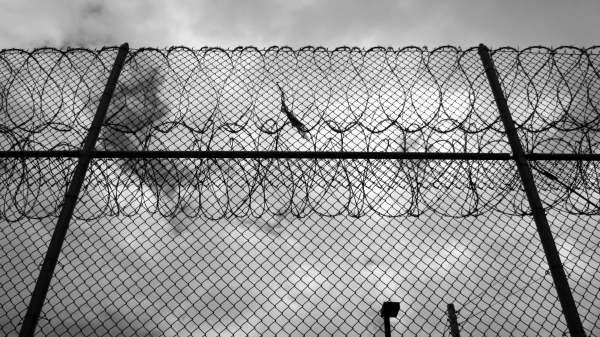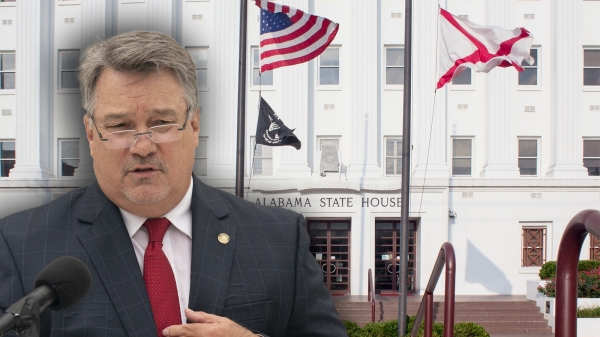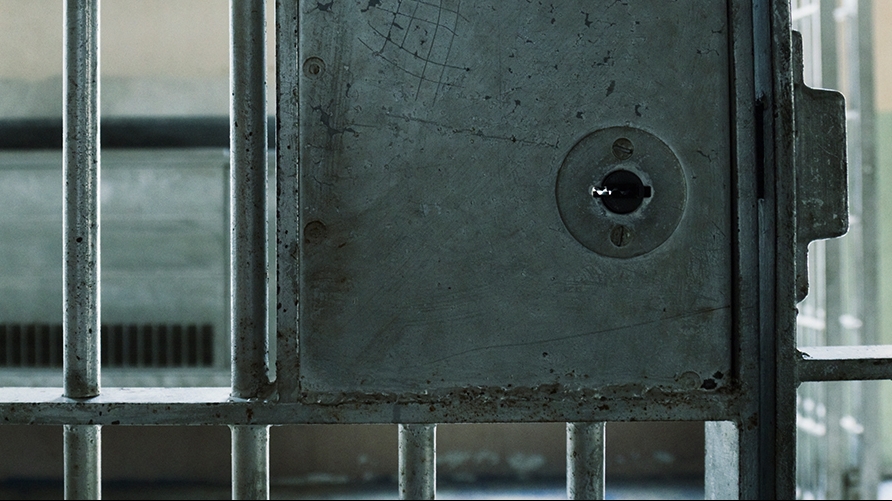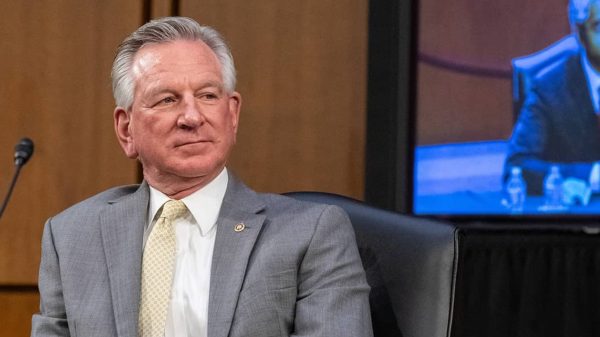By Josh Moon
Alabama Political Reporter
When Sen. Cam Ward left Montgomery for a trip to DC on Wednesday evening, there seemed to be a tentative agreement among Senate Republicans and various lobbyists, special interest groups and public watchdogs on a prison deal.
That agreement, spelled out in a new bill Ward floated to the media late Wednesday, cut the number of prisons being constructed from four to three, reduced the overall cost by $25 million and, most importantly to the bill’s survival, it removed the alternative delivery method and ensured the entire project would be publicly bid at every stage.
After more than a year of haggling, everyone seemed placated and ready to move forward.
Then it all fell apart.
“I’m not really sure what happened,” Ward said Thursday morning. “I just got back into town and I got hit with this first thing.”
At a Republican caucus meeting earlier Thursday morning, the political will had among Ward’s fellow Republicans had suddenly vanished, and in its place was a new prison bill. This bill did virtually nothing – it committed just $100 million in state money to renovating existing facilities and promised lease agreements with counties that opted to secure bonds to renovate or build prisons as part of the project.
That left Ward in the awkward position of asking Democrats for help passing his $775 million compromise bill out of the Senate Judiciary committee. Ward got the votes to move that bill to the Senate floor, but it was clear he had lost momentum and that the deal – so promising hours earlier – was all but dead.
The reasons for its death were as common as they were impractical. Sometime between Wednesday and Thursday, lawmakers came to realize that the new bill would be an instrument they created, and when the campaign ads started up, it would be their names tied to a mountain of state debt – for prisons.
Suddenly, the need for even three large facilities seemed to lessen. Lawmakers convinced themselves that the threat of a Federal takeover wasn’t imminent, and that even if one did occur, new US Attorney General and former Alabama Senator Jeff Sessions would step in and save his home state from massive expenses.
Of course, that’s not the reality, and the bearer of that reality resides in a Federal courtroom in Montgomery. Judge Myron Thompson currently holds Alabama’s future budgets in the palm of his hand, as he decides a couple of cases dealing with Alabama’s overcrowding and mental health care in prisons.
More than a decade ago, long before capacity reached its reported current levels of near 200 percent, Thompson called Alabama’s prisons, and the overcrowding that existed even then, “a ticking timebomb.” And during the recent prisoner mental health trial, a prisoner who served as a witness in the case committed suicide and Thompson ordered Alabama to provide additional monitoring. So, the prospects for winning these cases are not good. Alabama is likely to be forced to spend millions to reduce overcrowding, employ additional guards and bring in more mental health experts.
But that doesn’t necessarily mean that Ward’s plan is the only pathway forward either, because it only really addresses one of those issues – the overcrowding.
The Hybrid
A number of people around the State House believe the prison plan that has the best chance for approval is a hybrid plan that cuts costs for new facilities and provides more money for renovating local prisons and hiring additional corrections officers.
Such a plan accomplishes two big things: it lessens the total upfront price of the project – allowing lawmakers to tell their district voters, “See how much I saved you from what the governor wanted to spend?” – and it also creates jobs in a number of counties.
(No matter how many times lawmakers say the prison bill shouldn’t be thought of as a jobs bill, it certainly wouldn’t hurt their feelings if voters thought of it that way.)
In addition, a hybrid – if done the right way – would receive the backing of many sheriffs around the State, and most of them would help push it.
As it stands now, those sheriffs are mostly pushing against the current proposals.
That’s because the current bill takes money, workers and resources out of their counties. Whether sheriffs want to admit it or not, they often find themselves relying heavily on prison labor to get things done and pay bills. Those prisoners have historically been so valuable to the local sheriffs that the sheriffs have entered into agreements with the State to house the prisoners for free.
“These prisoners can sometimes more than make up for what they cost to house through their work,” Clarke County Sheriff Ray Norris said. “The truth is, though, we can house them cheaper than what they’re talking about (at State prisons) and provide better oversight of them. It’s a better overall system for everyone.”
Norris and a number of other sheriffs around the State like a prison plan pitched by Rep. Johnny Mack Morrow. That plan would see the State devote between $30 and $35 per prisoner per day (versus the $42 per day Alabama Department of Corrections says it spends) to county prisons and have them sign agreements to house specific numbers of prisoners. After DOC determines how many beds that gets them, lawmakers would spend money only to build or renovate prisons to make up the difference.
“It makes sense all the way around,” Norris said. “You have smaller populations of prisoners which is going to reduce the violence. We have more guards watching over them. It makes it easier on the prisoner’s family to come see him and hopefully keep that bond they need on the outside. And they can learn a trade they can take with them.
Lack of Trust
Sheriffs and others around the State are having a difficult time trusting the Governor and State lawmakers on the prison bill, primarily because those bills — Bentley’s $800 million plan and Ward’s $775 million substitute bill — don’t make practical sense to them. And also because they’ve seen more than a little shadiness out of the State to get those proposals off the ground.
For example, several sheriffs, and other sources who spoke with APR, said there have been instances over the past year of DOC moving prisoners from county facilities to state-run facilities in order to beef up the number of prisoners at State facilities. That’s also why so many GOP lawmakers see overcrowding as a manufactured crisis.
Currently, sheriffs estimate that there are hundreds, maybe into the thousands, of beds available at county facilities that could ease the overcrowding issue. But they’re not being used.
In addition, the State has more than doubled the estimated cost of housing those prisoners in their facilities, telling lawmakers that it costs over $40 per day per prisoner. Yet, a lawsuit filed by county sheriffs in the mid-2000s resulted in the State agreeing to pay just $15 per prisoner – up from a paltry $1.75 it had previously paid the counties.
That lawsuit came after a 2003 court order that told State DOC officials to get busy moving prisoners from overcrowded county jails to State prisons. Now, a large number of county facilities are under capacity.
“It seems like a made-up crisis to me a little bit,” said one sheriff, who spoke to APR on condition of anonymity. “We have beds available. We’ve asked to house more State prisoners. The State took the option away. What sense does that make?”
The Cure
At the Senate Judiciary Committee’s public hearing on the prison bill, a current prison warden spoke. She said she stands just 5-foot-2, yet on some days in her jail, because of a lack of staff and too many prisoners, she has found herself working with one other guard to keep an eye on 2,000 prisoners.
That’s a recipe for disaster, and disaster within Alabama’s prisons has been common of late. From frequent stabbings and prisoner deaths to the kidnapping of a warden to the death of a guard recently, the problems are obvious.
But what’s less obvious to everyone involved is how a prison plan to build three or four large prisons either solves your issues or fits into the reform plan the Legislature put in place a couple of years ago. The cornerstone of that plan was sentence reform, which Ward said recently has already dropped the population from around 27,000 to fewer than 22,000.
“So, if the numbers are declining that dramatically, why are you building prisons that will be mostly empty?” a lobbyist recently asked APR. “Why wouldn’t you utilize the facilities you currently have operating to handle the overflow and renovate the existing structures?”
As Norris pointed out, another advantage of utilizing county facilities is that those jails can begin taking in prisoners almost immediately. The new prisons, however, won’t be finished for years.
“In most of our jails, we could start taking in more prisoners this afternoon,” Norris said.
That solution also provides one other key component: because it’s cheaper, it frees up money to address the two other concerns in Alabama’s prisons. The state could start hiring and adequately paying prison guards, and it could finally address the egregious manner in which it has failed to care for mentally ill inmates.
The Conclusion
The only answer to be taken from any of this is simple: there is no clear, easy pathway forward on this topic.
While the $775 million plan addresses most concerns, it doesn’t come close to solving them all. Morrow’s plan also has its flaws – namely that there is no consensus among the sheriffs and establishing the need and timetable for individual county jail renovations is almost impossible.
“This is what happens when you let a problem like this sit unaddressed and not cared about,” a lobbyist said. “Now, every way forward will be unpleasant and a pitfall.”























































